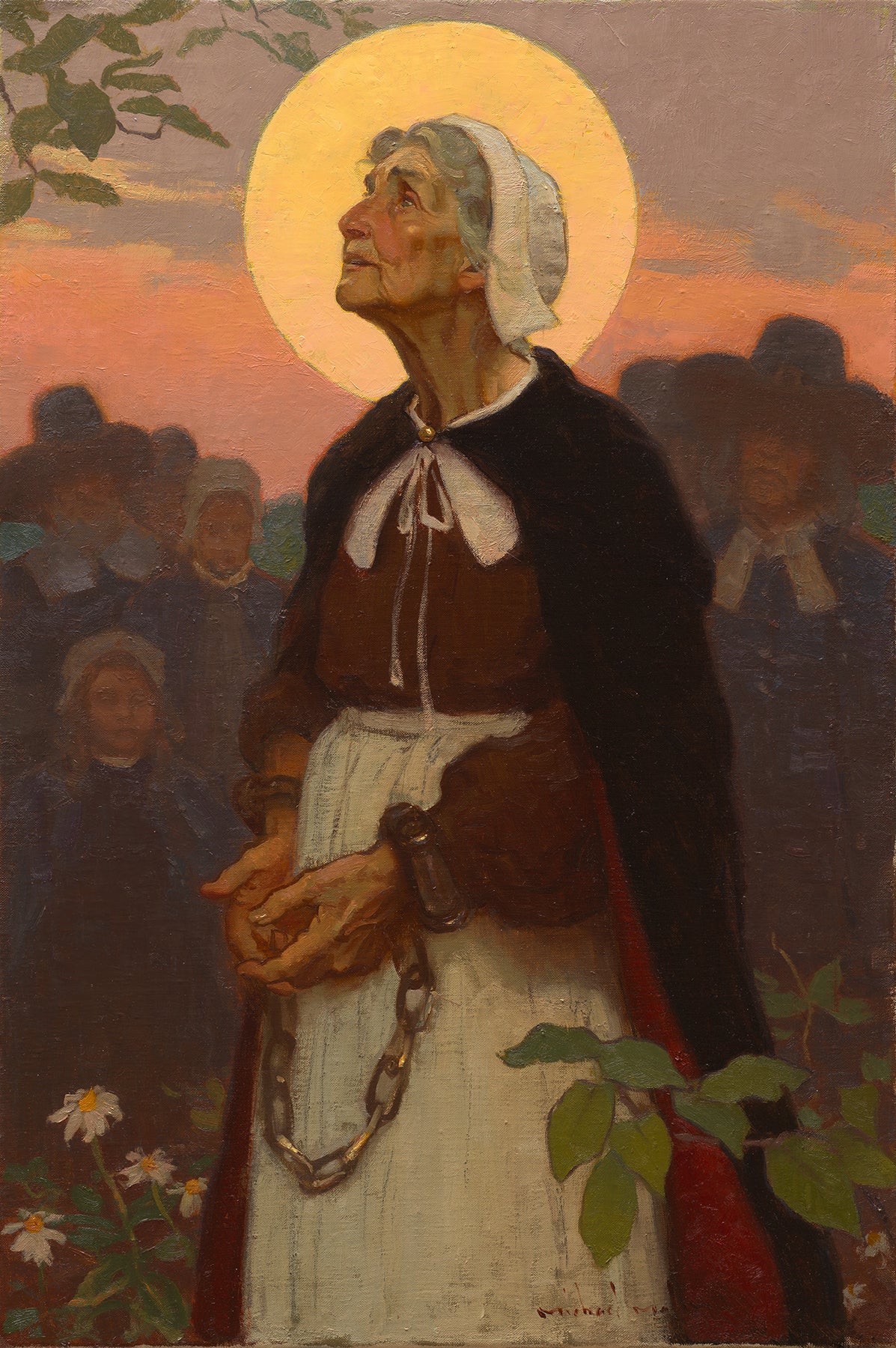Rebecca Nurse
In colonial Massachusetts between 1692-93, a mass hysteria of witch phobia erupted and resulted in a frenzy of fractured communities and tragic loss of innocent lives.
One such victim was Rebecca Nurse, a frail 71-year-old mother of eight who was well-respected in her community and known for her benevolence and piety. The warrant for her arrest was based on accusations made by prominent community members Edward and John Putnam. Their family member, Ann Putnam Jr., was one of the young girls who claimed to be afflicted by witchcraft and would break into spastic fits, claiming Rebecca as a source of torment.
Rebecca was required to represent herself during her trial since she was not allowed to have a lawyer. Many friends and family members testified in her behalf but, since she was devoutly religious, the magistrates presiding over the case took an usual stance, declaring that if she was innocent, God would reveal it because “it is a sad thing to see church members accused.”
The controversial allowance of spectral evidence (legal evidence based on the testimony of people claiming to have visions) in the trial given by the group of “afflicted” girls condemned Rebecca. Her age-related hearing impairment also contributed to her inability to defend herself and she was sentenced to death on July 19, 1692.
Ann Putnam, Jr. formally confessed to delusion and deception in 1706. She greatly grieved her contribution to the deaths of innocent people and was tormented by it the rest of her life. Rebecca Nurse was fully exonerated and her family worked to restore her good name and eventually dedicated a monument in her memory.
The Salem Witch Trials are a cautionary tale about the dangers of false accusation, extremism, and lapses in due process of law. The lasting effects of this brief period in American history have been cited as highly influential by historians.


